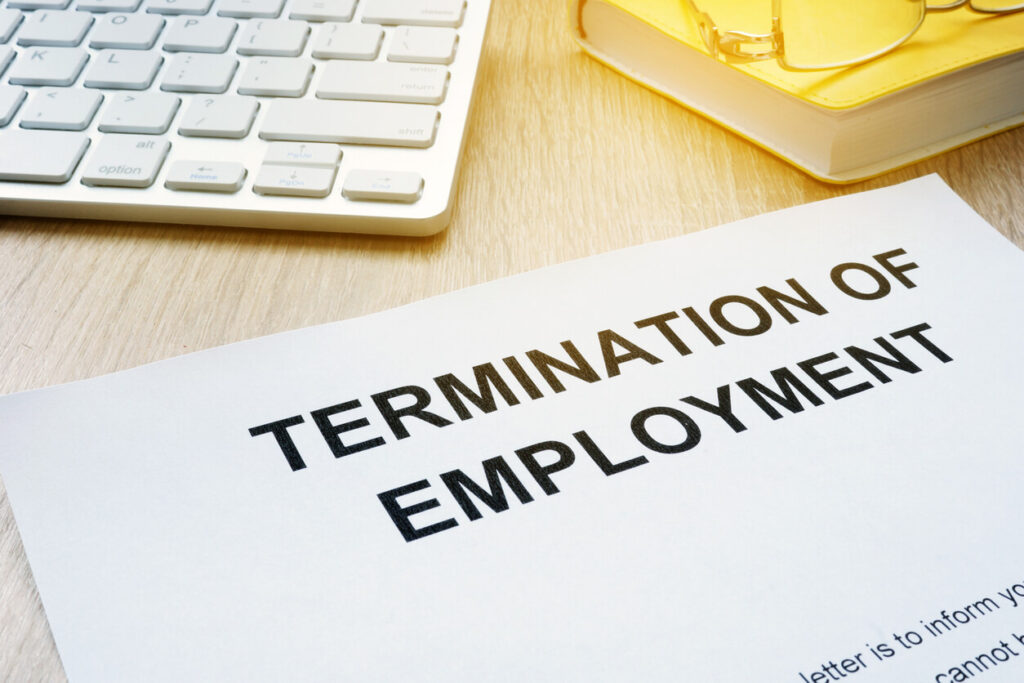Society and the law on unfair dismissal currently place employers in a grim position. On the one hand, society at large (rightly) expects employers to ‘weed out’ unacceptable workplace behaviour such as discrimination, homophobia, Islamophobia, and bullying. Indeed, employers may be held vicariously liable if an employee suffers psychological injury due to racism or bullying from a colleague. On the other hand, the Fair Work Act 2009 (Cth) (“FW Act”), at s 385, states a dismissal will be “unfair” if “the dismissal was harsh, unjust or unreasonable.” Unfortunately for employers and managers, it is proving difficult for many employers to pass the test in s 385 when seeking to eradicate workplace bullying and homophobia/Islamophobia by those employees who choose to engage in such behaviour. The risk of having an unfair dismissal claim result in reinstatement is particularly worrying for employers, since it could result in the return of a worker known to behave in an unacceptable manner towards colleagues or clients. The FWC’s recent decisions in Mt Arthur Coal Pty Ltd t/a Mt Arthur Coal v Jodie Goodall
[2016] FWCFB 5492 (“Mt Arthur Coal”) serves to emphasise the high hurdle employers must jump to complete a “fair” dismissal for misconducting employees.
Can employees be dismissed for severe workplace bullying or discriminatory tirades?
In Mt Arthur Coal, the employee, Mr Goodall, engaged in serious misconduct, including:
- Violating the employer’s clear workplace health and safety (“WHS”) policies, using the mine’s radio communication system for 110 minutes of “chat”;
- Expressing “derogatory views of people of a particular race/religion”, including stating a particular cultural background “had 1400 years of bloody inbreeding so they gotta be —d up”; and
- Making derogatory homophobic and crude sexual comments, a number of which were directed at specific colleagues, including saying a particular colleague was reading a book “on 50 ways to eat cock” and would like getting his “rear end banged up”.
At first instance and on appeal, the FWC concluded it was too “harsh” to dismiss Mr Goodall for his actions and comments. The FWC, at first instance, characterised Mr Goodall’s misconduct as generally being at the ‘low-to-medium seriousness level’. For example, Commissioner Saunders considered the “50 ways to eat cock” jeer to have been made because Mr Goodall thought it was “humorous”, and not because he was setting out to intentionally bully his colleague. However, it is difficult to see how a bully’s culpability should be dependent upon their intent, especially given the objective test for bullying under the relevant law.
On appeal to the FWC Full Bench, the case was heard by Vice President Hatcher, Deputy President Wells and Commissioner Johns. The Full Bench majority (Vice President Hatcher and Deputy President Wells) dismissed the appeal, concluding Commissioner Saunders had not made an appealable error.
Should homophobic and racists comments at work be a sackable offence?
Commissioner Johns emphasised that the decision to reinstate Mr Goodall “failed to take into account relevant matters about the known adverse impact of discrimination in the workplace.” Commissioner Johns highlighted the fact the employer’s Code of Business Conduct expressly prohibited behaving in a way that is “offensive, insulting…or humiliating’, [including] making jokes about a person’s race…ethnicity, religion, [or] sexual preference”.
Commissioner Johns, arguably correctly, also identified that Mr Goodall had “singled out and directly targets [a particular colleague] with…homophobic slurs.” Accordingly, Johns C concluded the Commission’s first instance decision, that “the gravity of…Mr Goodall’s crude, lewd and sexist comments were towards the lower end of the scale of seriousness”, was not logically open on the facts.
Workplace bullying based on homophobia and islamophobia can easily cause serious psychological injury. As noted above, employers are under a legal obligation to provide a workplace free from WHS risks. Worryingly for business, employees can bring workers’ compensation claims if they are injured due to persistent bullying, but decisions such as Mt Arthur Coal suggest that employers cannot defend themselves against such risks by removing staff who engage in such conduct. Surely, bullying a colleague with unacceptable homophobic/Islamophobic statements should be a ‘sackable’ offence, and victims of such conduct should be supported by the FWC through its decisions.
The need for the FWC to help stamp out repressible workplace conduct
In the interests of consistency between dismissal law versus WHS and discrimination vicarious liability law, as well as society’s broad expectations, there is a need for an FWC Full Bench to take a stand against serious and unacceptable derogatory, homophobic and Islamophobic slurs at work. This could be done, within the existing FW Act framework, by an FWC Full Bench using its discretion to characterise such conduct, serious or repeated bullying, as an aggravating circumstance outweighing all other mitigating circumstances. This would align dismissal law with the current standard employers are held to under WHS and discrimination laws. Employers would then be able to comply with their WHS obligations, eliminating the risk to health and safety from bullying, by setting an example in serious cases.
What can you do to successfully manage workplace discrimination and minimise their WHS risk?
The FWC takes into account all the relevant circumstances when assessing whether a dismissal is “fair”. In Mt Arthur Coal, the ex-employee relied upon the fact the employer had not recently provided training to the employee about acceptable workplace conduct. In Mt Arthur Coal, as in many other cases, the lack of recent, adequate, training allowed the employee to successfully argue they should be reinstated.
You can assist your business to successfully defend unfair dismissal claims, by ensuring you have adequate policies and provide sufficient training to employees on acceptable and unacceptable workplace conduct. As in Mt Arthur Coal, the mere fact a policy is in place will be insufficient if you have not provided adequate training to employees.
You can minimise your legal risk from unfair dismissal claims by:
- Having regular training on acceptable conduct run for your employees;
- Regularly reviewing policies to ensure they are up to date, taking into account the latest developments in case law; and
- Organise professional training, or engage external workplace relations experts, to conduct thorough and defensible investigations into alleged misconduct.
If you require bespoke advice or training to manage employee misconduct or dismissal issues, please call Mark at Workplace Wizards on 0411 503 744.




0 Comments Leave a comment
Comments are closed.